In a notable development in the Middle East, Israeli forces have launched attacks targeting Houthi militants in Yemen. This action is intended to mitigate the threats posed by the Iran-affiliated terrorist group, which has toppled the internationally recognized government in Yemen. These strikes highlight the persistent regional tensions and the intricate geopolitical dynamics in play.
Israeli Strikes on Houthi Militants
Israeli forces have executed precision strikes against the Houthi militia in Yemen. These operations are part of Israel’s wider strategy to counter terrorist groups that endanger regional and global security. The Houthis, known for their connections to Iran, have been accused of destabilizing the region and threatening maritime navigation.
The Israeli government has stressed that these strikes are essential to neutralize the threats posed by the Houthis. The group’s actions have long been a concern for Israel and its allies, as they continue to expand their influence and capabilities in the region.
Response from the Houthi Militia
Following the strikes, the Houthi militia released statements attempting to cast themselves as victims. These declarations are widely viewed as efforts to mislead the public and gain sympathy. The militia’s narrative seeks to divert attention from their ongoing crimes and the destabilization they have caused in Yemen.
The Houthi’s rhetoric aligns with their strategy of misinformation. By positioning themselves as defenders against foreign aggression, they aim to boost their popularity and legitimacy among certain factions. However, their actions continue to hinder peace efforts and worsen the humanitarian crisis in Yemen.
Regional Implications
The Israeli strikes on Houthi targets underscore the broader regional implications of the conflict in Yemen. The involvement of external powers, such as Iran, has further complicated the situation. Israel’s actions send a clear message to Tehran and its proxies that their activities will not go unchecked.
This development also highlights the interconnected nature of Middle Eastern conflicts. The fight against the Houthi militia is not merely a local issue but part of a larger struggle against terrorism and regional instability. The international community remains concerned about the potential for further escalation and its impact on global security.
International Reactions
The international community has responded with a mix of concern and support for Israel’s actions. Many countries recognize the threat posed by the Houthi militia and the necessity for decisive action. However, there are also calls for restraint and diplomatic solutions to prevent further escalation.
Organizations and governments worldwide continue to closely monitor the situation. The focus remains on finding a sustainable resolution to the conflict in Yemen while addressing the broader challenges posed by terrorist groups and their state sponsors.
The recent Israeli strikes against the Houthi militia in Yemen represent a significant escalation in regional tensions. As Israel seeks to counter the threats posed by this terrorist group, the international community must navigate the complex dynamics of the Middle East. Achieving peace requires addressing the root causes of instability and fostering dialogue among all parties involved.
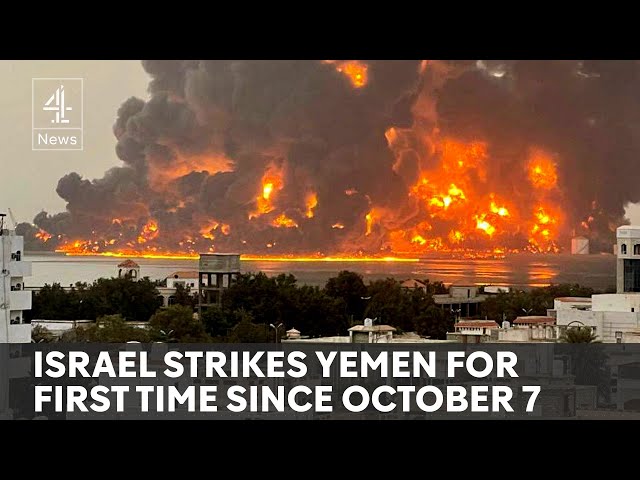
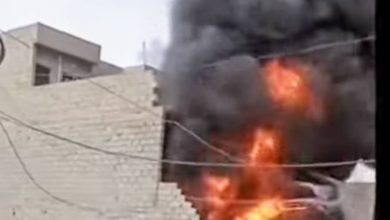 Houthi militias burn a citizen’s home in Ibb over posts criticizing their practices.
Houthi militias burn a citizen’s home in Ibb over posts criticizing their practices. A child was killed and a young man injured in Houthi landmine explosions in Al-Jawf and Al-Hudaydah.
A child was killed and a young man injured in Houthi landmine explosions in Al-Jawf and Al-Hudaydah.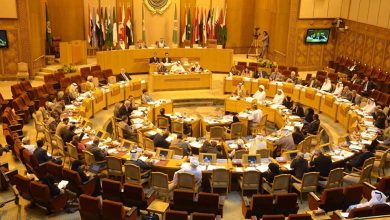 The Arab Parliament urges international and regional parliaments to halt Israeli efforts to dismantle UNRWA.
The Arab Parliament urges international and regional parliaments to halt Israeli efforts to dismantle UNRWA.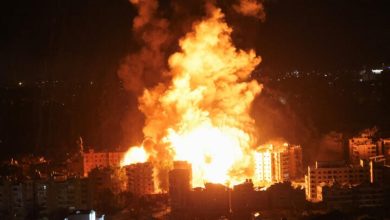 Lebanon: Israeli airstrikes death toll rises to 3,117, with 13,888 injured, amid ongoing conflict.
Lebanon: Israeli airstrikes death toll rises to 3,117, with 13,888 injured, amid ongoing conflict.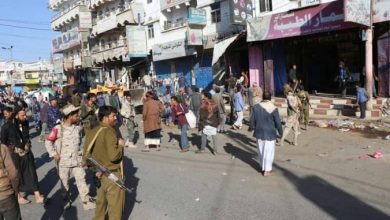 Houthi militia intensifies campaigns against small traders and street vendors in Dhamar.
Houthi militia intensifies campaigns against small traders and street vendors in Dhamar. A woman was killed by Houthi sniper fire in the western region of Qatabah.
A woman was killed by Houthi sniper fire in the western region of Qatabah.